No products in the cart.
Active filters
Takenoko
A long time ago at the Japanese Imperial court, the Chinese Emperor offered a giant panda bear as a symbol of peace to the Japanese Emperor. Since then, the Japanese Emperor has entrusted his court members (the players) with the difficult task of caring for the animal by tending to his bamboo garden.
In Takenoko, the players will cultivate land plots, irrigate them, and grow one of the three species of bamboo (Green, Yellow, and Pink) with the help of the Imperial gardener to maintain this bamboo garden. They will have to bear with the immoderate hunger of this sacred animal for the juicy and tender bamboo. The player who manages his land plots best, growing the most bamboo while feeding the delicate appetite of the panda, will win the game.
Habitats
In Habitats, each player builds a big wildlife park without cages or fences. The animals in your park need their natural habitats: grassland, bush, rocks or lakes. The zebra needs a big area of grass and some water adjacent, for example, while a bat needs rocks and bush and water, a hart needs bush and grass, and a crocodile needs mainly water. There is a snake, baboon, bee, elephant, otter, lizard, turtle, eagle, meerkat, scorpio, hog, catfish, rhino, etc., each with its own landscape requirements — 68 different animals in total.
Takenoko
A long time ago at the Japanese Imperial court, the Chinese Emperor offered a giant panda bear as a symbol of peace to the Japanese Emperor. Since then, the Japanese Emperor has entrusted his court members (the players) with the difficult task of caring for the animal by tending to his bamboo garden.
Earth
Earth, the soil that supports and sustains our beautiful planet, Earth. Over thousands of years of evolution and adaptation the flora and fauna of this unique planet have grown and developed into amazing life forms, creating symbiotic ecosystems and habitats.
[DAMAGED] Rauha
After millennia of sterility, life has sprung again on Rauha. As a venerable Shaman, one of its five worlds has been entrusted to you. Your powers are divine and allow you to shape the environment in order to turn this world into a cradle of life energy, keeper of serenity and harmony for the centuries to come.
John Company: Second Edition
In John Company, players assume the roles of ambitious families attempting to use the British East India Company for personal gain. The game begins in the early eighteenth-century, when the Company has a weak foothold on the subcontinent. Over the course of the game, the Company might grow into the most powerful and insidious corporation in the world or collapse under the weight of its own ambition.
Cascadia - Landmarks
In Cascadia: Landmarks expansion, players create sprawling habitats and place beautiful natural landmarks within them. Landmarks give each environment its own look and feel, while also providing dynamic endgame scoring bonuses!
Keystone: North America (Deluxe)
In Keystone: North America, you and your friends will take on the role of biologists and work to build an interconnected ecosystem through the careful placement of cards. Use skills, introduce important Keystone animals, and perform wildlife research to maximize your points.
Hegemony: Lead Your Class to Victory
The Nation is in disarray and a war is waging between the classes. The working class faces a dismantled welfare system, the capitalists are losing their hard-earned profits, the middle class is gradually fading and the state is sinking into a deep deficit. Amidst all this chaos, the only person who can provide guidance is... you. Will you take the side of the working class and fight for social reforms? Or will you stand with the corporations and the free market? Will you help the government try to keep it all together, or will you try to enforce your agenda no matter the cost to the country?
Rauha
After millennia of sterility, life has sprung again on Rauha. As a venerable Shaman, one of its five worlds has been entrusted to you. Your powers are divine and allow you to shape the environment in order to turn this world into a cradle of life energy, keeper of serenity and harmony for the centuries to come.
Codex Naturalis
In CODEX Naturalis, you must continue the work of the illuminating monk Tybor Kwelein, assembling the pages of a manuscript that lists the living species in primary forests. Can you put the pages together in the best order possible? And are you prepared to sacrifice a species to develop your manuscript?
Verdant
Take on the role of a houseplant enthusiast – collecting and caring for plants as you compete to create the coziest, most verdant home! With variable scoring goals, each game of Verdant brings a new spatial puzzle to your table!
Takenoko: Chibis
A long time ago, the Emperor of China offered to the Emperor of Japan a giant panda, a symbol of peace. Your delicate mission: Take care of the animal by planning a bamboo field. Now as a reward for your great work, you are being offered a second panda...a female!
[DAMAGED] Codex Naturalis
In CODEX Naturalis, you must continue the work of the illuminating monk Tybor Kwelein, assembling the pages of a manuscript that lists the living species in primary forests. Can you put the pages together in the best order possible? And are you prepared to sacrifice a species to develop your manuscript?
In the Footsteps of Darwin
Twenty years after his expedition around the world, Charles Darwin is writing On the Origins of Species. He wants to gather new information about animal life, particularly about continents he hardly explored. Who other than young naturalists, eager for discovery, could help the renowned scholar finish writing his most famous work?
Pax Pamir: Second Edition
In Pax Pamir, players assume the role of nineteenth century Afghan leaders attempting to forge a new state after the collapse of the Durrani Empire. Western histories often call this period "The Great Game" because of the role played by the Europeans who attempted to use central Asia as a theater for their own rivalries. In this game, those empires are viewed strictly from the perspective of the Afghans who sought to manipulate the interloping ferengi (foreigners) for their own purposes.


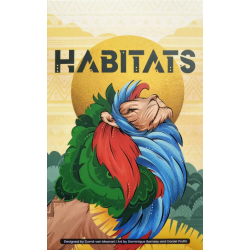
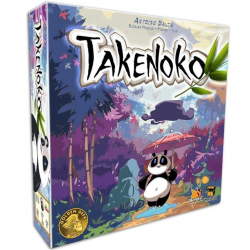

![[DAMAGED] Rauha](https://kienda.co.uk/6073-home_default/rauha.jpg)

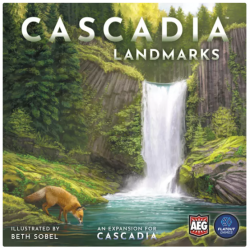
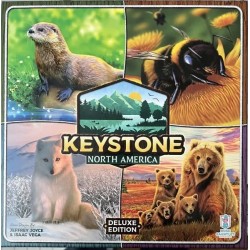

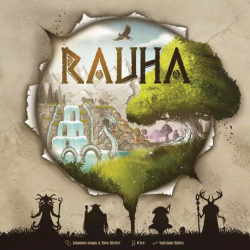
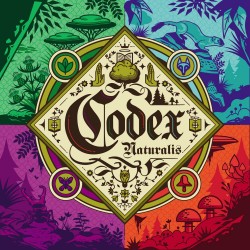
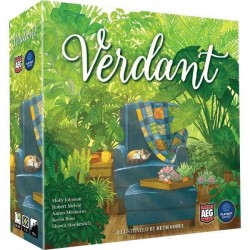
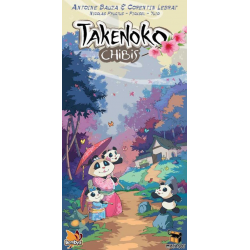
![[DAMAGED] Codex Naturalis](https://kienda.co.uk/6081-home_default/codex-naturalis.jpg)






![[DAMAGED] Rauha](https://kienda.co.uk/6073-medium_default/rauha.jpg)








![[DAMAGED] Codex Naturalis](https://kienda.co.uk/6081-medium_default/codex-naturalis.jpg)

